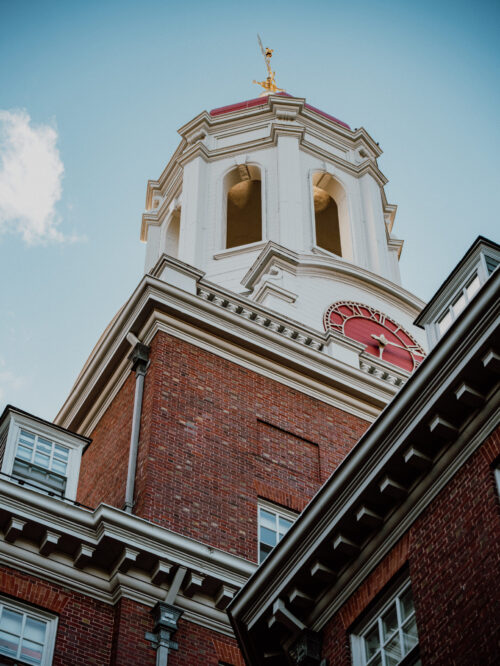On May 23, a federal judge granted Harvard University a temporary restraining order in response to its lawsuit seeking to block the Trump administration from revoking its Student Exchange and Visitor Program certification.
The order came less than two hours after Harvard requested an emergency halt to the Department of Homeland Security’s attempt to terminate the University’s international student enrollment capabilities and force all current J-1 nonimmigrants or F-1 visa students to transfer for the 2025-2026 academic year.
“This is the latest act of retaliation by the government for Harvard exercising its First Amendment rights,” the University’s complaint reads.
“This is a critical step to protect the rights and opportunities of our international students and scholars, who are vital to the University’s mission and community,” President Alan Garber wrote in his most recent communication to the campus.
Harvard’s lawsuit argues that the Trump administration’s decision is part of a broader campaign to punish the renowned higher education institution for resisting political pressure. The contested demands include turning over disciplinary records of foreign students, dismantling equity initiatives, and conducting viewpoint audits of faculty and staff. The University claims these measures are ideologically driven and legally baseless.
“With the stroke of a pen, the government has sought to erase a quarter of Harvard’s student body, international students who contribute significantly to the University and its mission,” the lawsuit states. “These students have contributed to the University’s research advancements in immeasurable ways. They do so by (among other things) publishing pioneering scholarship, supporting scientific research, inventing groundbreaking technologies, and starting thriving businesses here in America.”
In a statement shared with members of the Harvard community, Harvard President Alan Garber reaffirmed the University’s commitment to its international community: “You are our classmates and friends, our colleagues and mentors. We will support you and work to ensure Harvard remains open to the world.”
Harvard’s lawsuit names multiple federal agencies and officials, including the Departments of Homeland Security, Justice, and State, as well as DHS Secretary Kristi Noem, Attorney General Pam Bondi, and Secretary of State Marco Rubio.
In response, DHS Assistant Secretary for Public Affairs Tricia McLaughlin dismissed the lawsuit. “This is an attempt to undermine the President’s Article II powers. Enrolling foreign students is a privilege, not a right,” McLaughlin said.
However, Judge Allison D. Burroughs of the U.S. District Court for the District of Massachusetts has stated in her order that allowing the DHS action to proceed would cause Harvard “immediate and irreparable injury” before all parties have a chance to be heard. Burroughs is also overseeing Harvard’s original April lawsuit.
Burroughs, an Obama appointee, has handled multiple Harvard-related cases. In 2021, she oversaw the University’s lawsuit, filed jointly with MIT, challenging a U.S. Immigration and Customs Enforcement policy that sought to expel international students studying exclusively online. That policy was ultimately rescinded before a ruling was issued. Currently, Burroughs is presiding over a separate lawsuit from Harvard, filed in April, challenging the administration’s freeze of almost $3 billion in federal funding.
Under the terms of the TRO, the DHS is prohibited from enforcing its recent decision to revoke Harvard’s SEVP certification. Harvard is also relieved of its legal obligation to submit certain documents to DHS by Sunday.
This case has drawn national attention, testing the limits of executive power and the legal protections of academic freedom in the U.S.
The TRO will take effect immediately and is expected to remain in place until at least May 29, when there will be a hearing on whether to grant a preliminary injunction in Boston federal court. A status conference is scheduled for May 27. Harvard would need to formally seek a preliminary injunction to extend protection once the TRO expires.
Rania Jones ’27 (rjones@college.harvard.edu) and Sara Kumar ’27 (sjkumar@college.harvard.edu) write News for the Harvard Independent.

